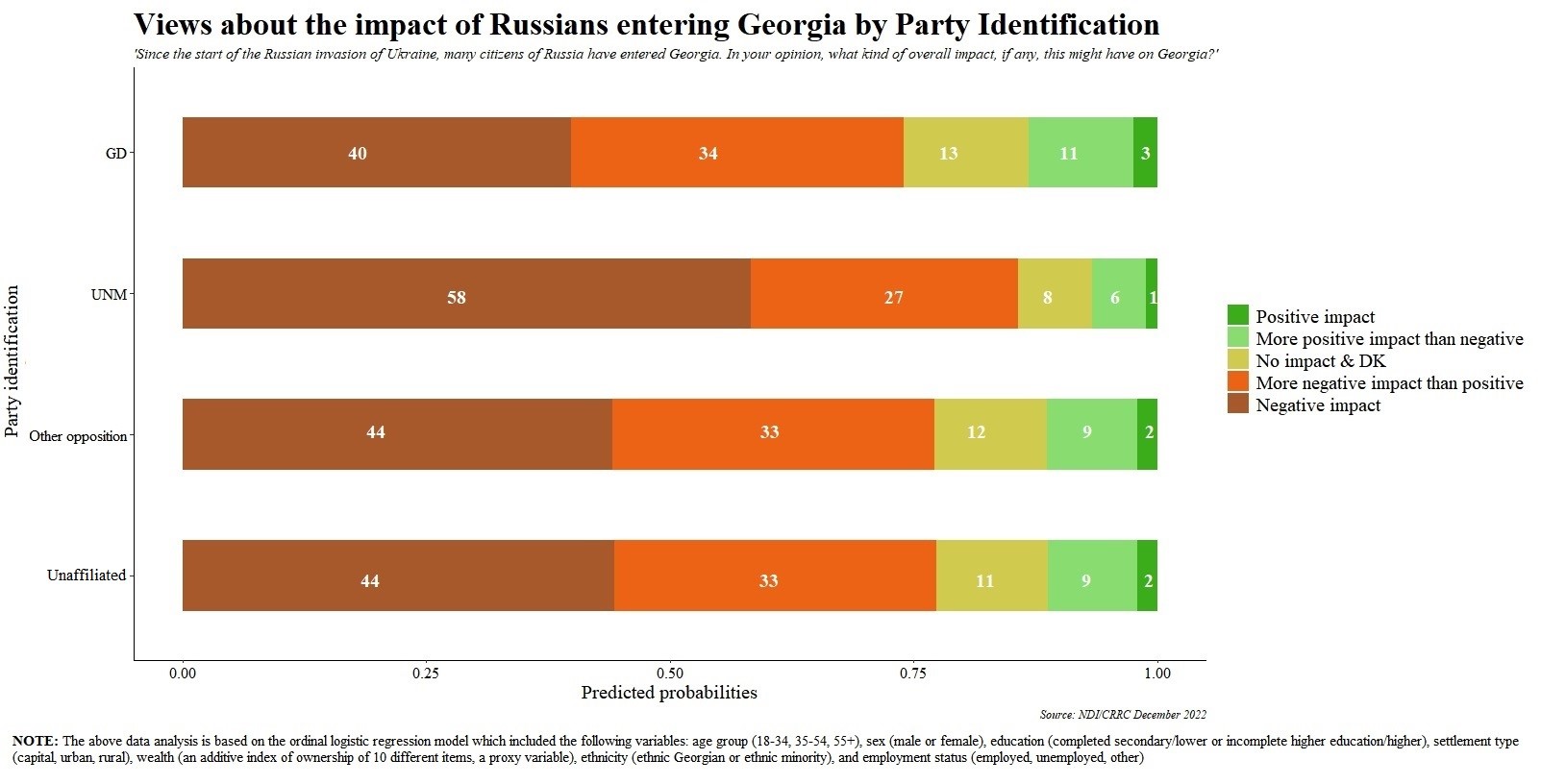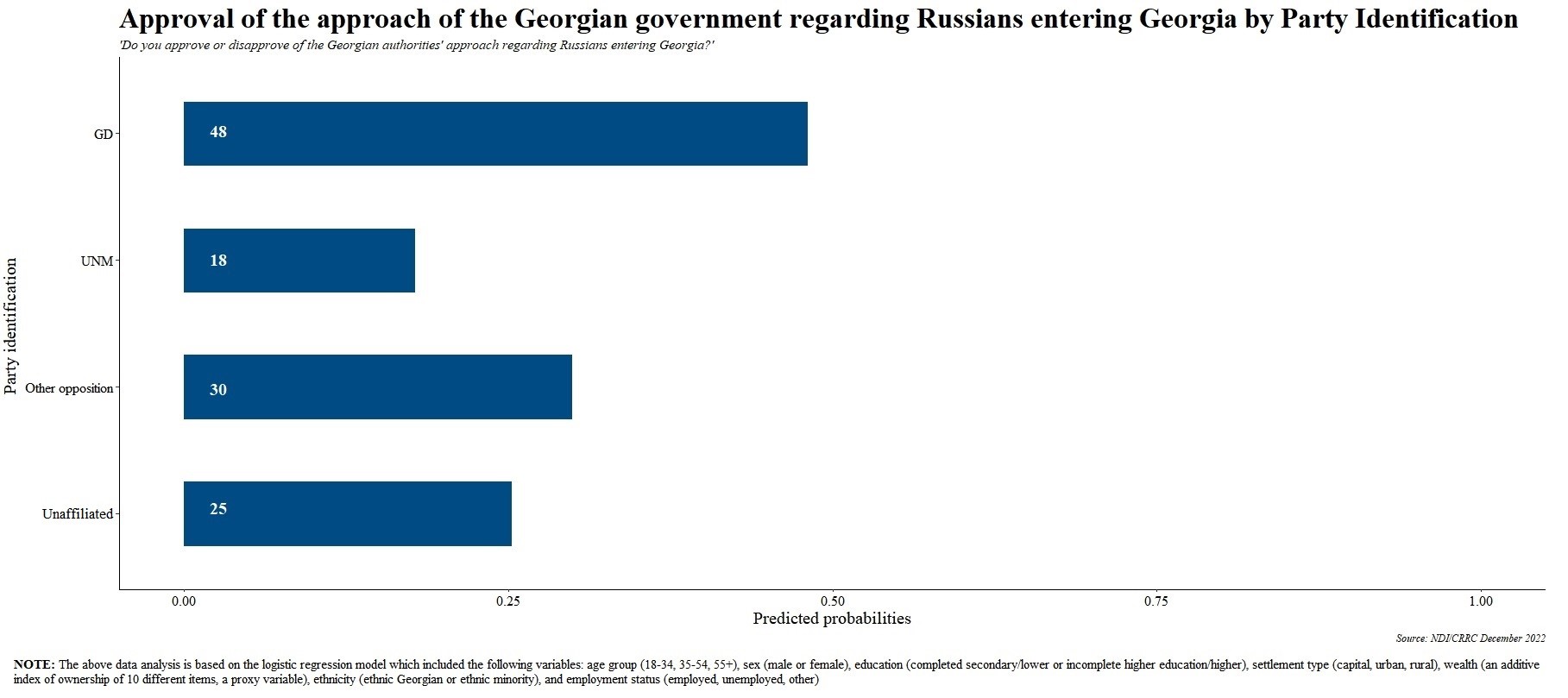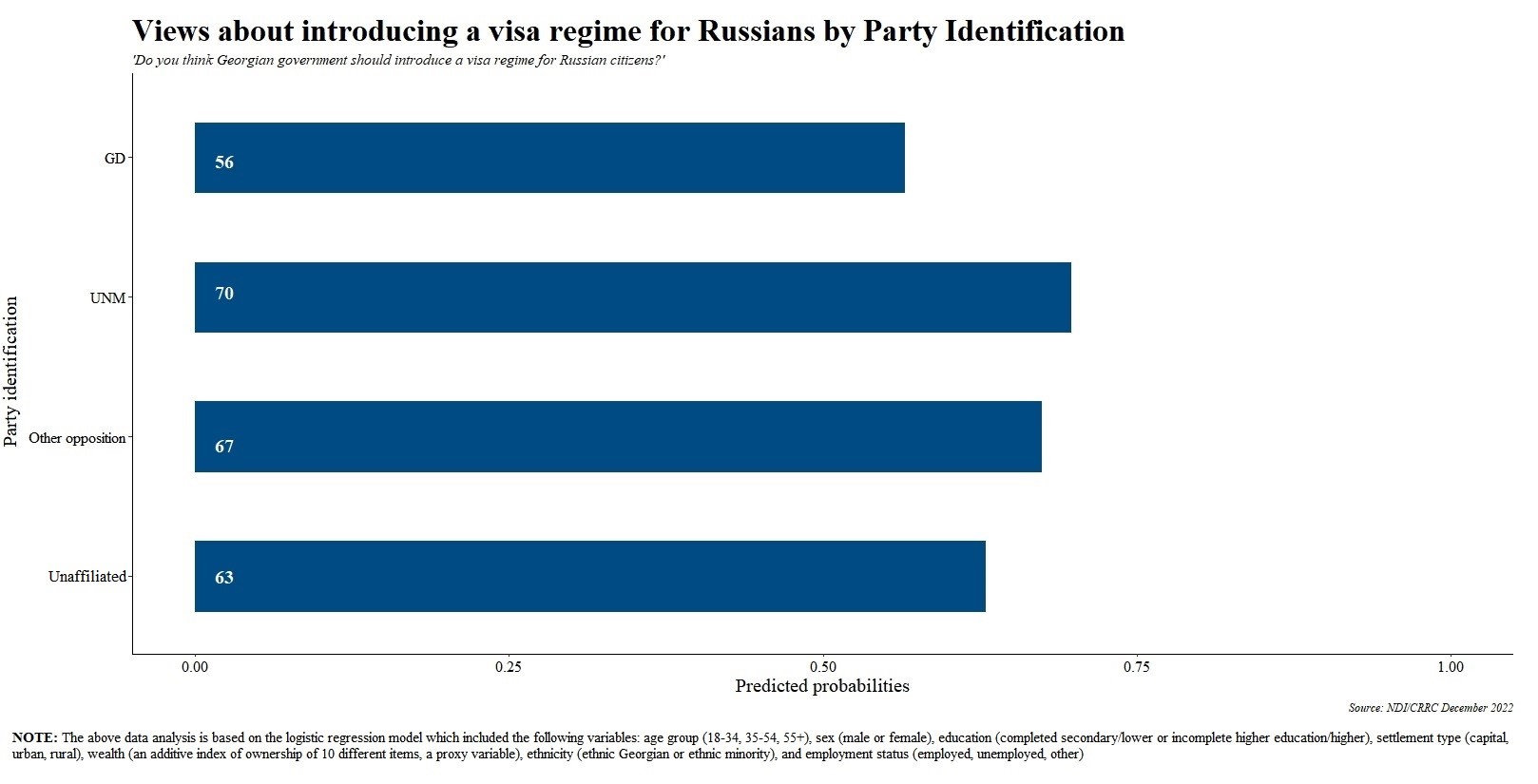Note: This article first appeared on the Caucasus Data Blog, a joint effort of CRRC Georgia and OC Media. It was written by Givi Silagadze, a Researcher at CRRC-Georgia, The views presented in the article are of the author alone, and do not necessarily reflect the views of NDI, CRRC-Georgia, or any related entity.
Recent CRRC data shows that a large majority of the Georgian public is concerned about the migration of Russians to Georgia.
Since Russia launched its invasion of Ukraine in February 2022, at least 1.2 million Russian citizens have entered Georgia, equivalent to roughly 30% of Georgia’s population. While the number of Russian citizens who have decided to stay in Georgia remains unclear, the impact of this mass migration is strongly felt in rising rents and concerns over the country’s security.
[Read more on OC Media: Suitcases and shattered dreams: fleeing Russians bring crisis to the Caucasus]
This has manifested in political conflict, with the opposition and the ruling Georgian Dream party arguing over the introduction of entry restrictions for Russian citizens.
A recent NDI and CRRC survey from December 2022 shows that this elite-level partisan difference mirrors a policy divide between everyday voters.
According to the findings, Georgians appear to be concerned about Russians entering their country: two-thirds (69%) think that the large number of Russian citizens entering Georgia since the war will likely have a negative impact on Georgia.
On the other hand, every sixth Georgian (17%) thinks it will have a positive impact, while 8% say that they do not know, and 6% think the recent influx of Russian citizens will have no impact on the country.
After controlling for other socio-demographic variables, Georgian Dream supporters were slightly more optimistic about Russians coming to Georgia than supporters of the largest opposition group, the United National Movement. However, supporters of the ruling party were not different from supporters of other opposition parties or voters who do not support any party in particular on this issue.
Approximately a third of the public (29%) approve of how the government handled the influx of Russian emigrés, while a majority of the public (57%) disapprove — the remaining 13% do not know what to think about the government’s handling of the emigration.
Regression analysis suggests there is a sharp partisan divide between those who support and do not support the authorities’ approach, with Georgian Dream supporters being much more likely to approve of the government’s Russian migration policy, as shown in the graph below.
Slightly more than two-thirds of the public (69%) were also in favour of introducing a visa regime for Russian citizens — including the majority of Georgian Dream’s supporters.
The above data shows two things clearly: a large majority of the public is concerned about the migration of Russian citizens to Georgia, but supporters of the ruling party are more likely to be satisfied with the government’s approach to the Russian influx.
Beyond partisan lines, however, the data also shows that the majority of Georgians are concerned and want the government to do something about Russian migration.



